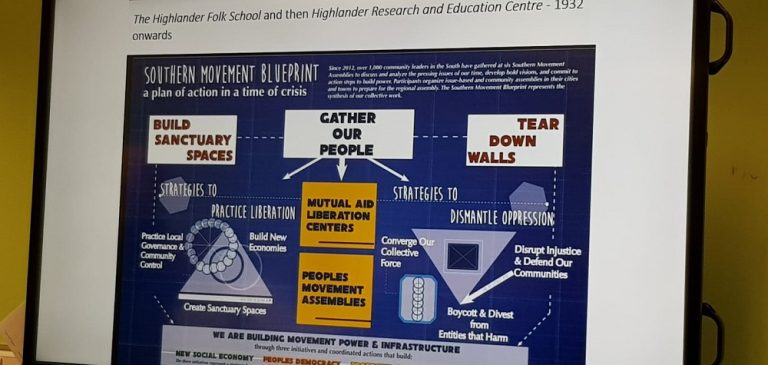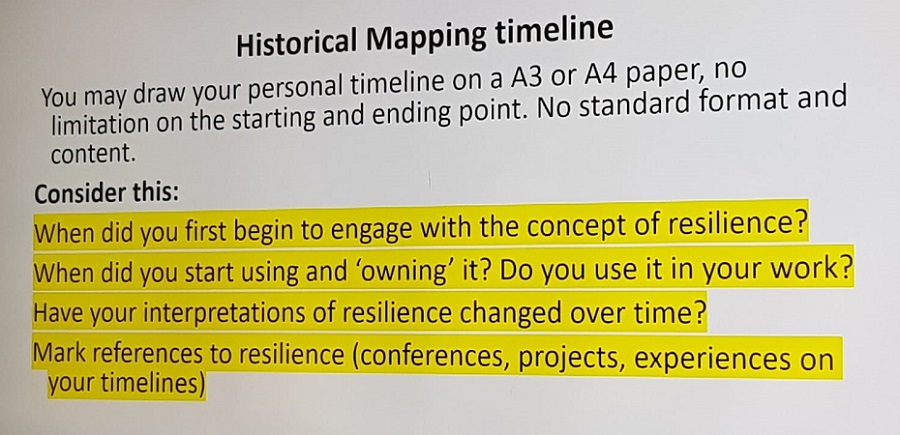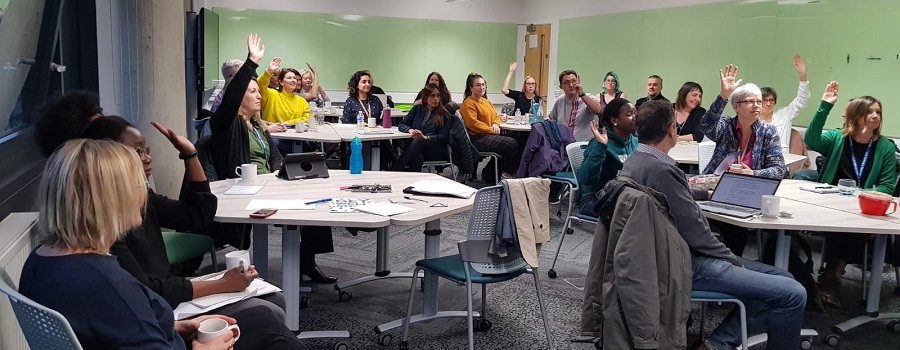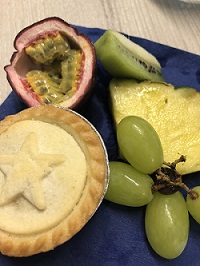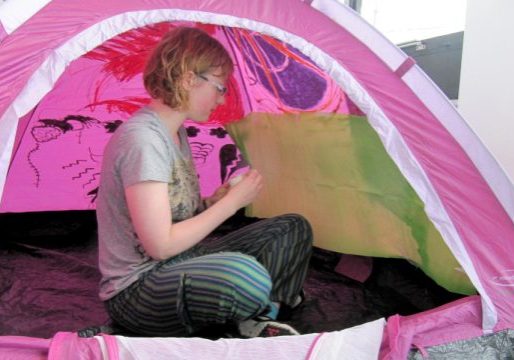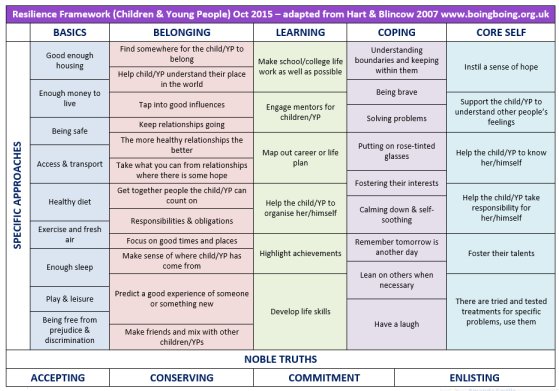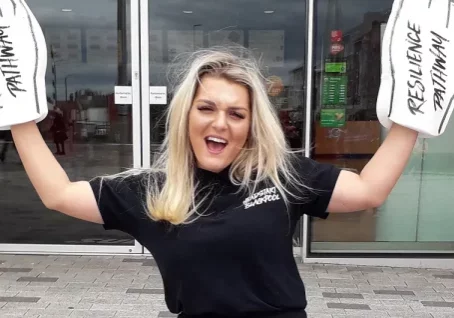Boingboing blogs from… The CRSJ open meeting arts based approaches to resilience
The Centre of Resilience for Social Justice meeting: What are arts based approaches to resilience building and resilience conceptual development? – 11 December 2019, University of Brighton
By Chantel Hargreaves, Centre of Resilience for Social Justice Administrator
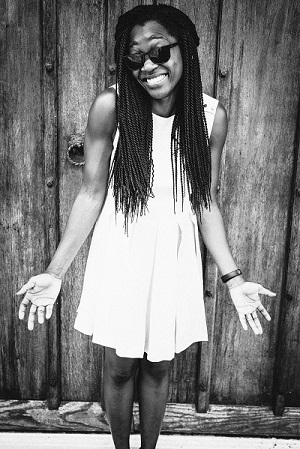
Hi there folks. Greetings from an admin team member at the University of Brighton. I recently attended a Centre of Resilience for Social Justice (CRSJ) open meeting to take notes that could be drawn on afterwards by people who went along. But just to mix it up a bit, and recognising my talents, Angie asked if I would write up the meeting as a blog. I’ve never written a blog but I welcomed the challenge so here goes.
First thing I noticed whist taking the register was the diversity of people attending the meeting. There was such a buzz. The Centre meetings really do attract a great mix – Academic colleagues from the School of Health Sciences, PhD Students: current and prospective, as well as volunteers from Boingboing and colleagues from Blackpool HeadStart with whom CRSJ and Boingboing are working together very intensively.
What does Resilience mean to me?
There are many definitions depending on who you speak to, but for me personally when I think of being ‘resilient’ I picture my mum… A young black woman in 80s Britain, family across the other side of the world, working three jobs whilst single handedly raising a young daughter. Being able to provide her daughter with financial stability, but most of all emotional support. I often wonder, how did she do it? Was she an actual superwoman? (She always will be to me!) Well she had a fantastic network of friends, and she always says without them she would not have managed, they supported her to be resilient.
The meeting…
So it began with some catching up over coffee and some delicious mince pies, of which I had a few! This was followed by a presentation from Dr Julia Winckler, Senior Lecturer, School of Media, on Arts-based approaches to resilience building and resilience conceptual development. I instantly warmed to Julia, you could see she has huge passion for what she does. I have to admit at the start of the presentation I did feel slightly overwhelmed by the content and wondered would I understand anything?! You can download Julia’s slides if you’d like to read them.
She spoke about two tools that could be used to build resilience:
- PhotoVoice
- Historical Mapping Timeline
PhotoVoice uses ethical photography to promote positive social change.
Photo Voice encourages the use of documentary photography by enabling those that have traditionally been the subject of such work to become its creator – to have control over how they are perceived by the rest of the world, while simultaneously learning a new skill which can enhance their lives. Participants document their own lives from the “inside” and to represent themselves to the outside world’ (Blackman & Fairey, 2007).
Check out the PhotoVoice website, there are some amazing projects.
I found myself wondering how does this help build resilience? Julia then gave some examples from projects she has worked on and it all became much clearer. Being a mother of two small boys I was particularly blown away and moved by some examples, but the two that stuck in my mind were:
A group of children at school were asked to bring in an item to share with the class that was special to them and to explain why. Raymond, a 9 year old boy, brought in a blanket from his grandmother who had passed away, and he said he would wrap it around him at night to help him sleep and feel his grandmother looking after him!
Another fantastic example was by Zach, aged 10, who had taken a photograph of an open umbrella which he described as something “that bounces off the worries”.
I was amazed at how this simple visual technique could be so powerful. The children articulating resilience without even knowing they were just that… RESILIENT! Julia said the images become both a visualisation and act as a witness of an affirmation or a commitment to embracing resilience or becoming resilient.
Julia then gave the group an activity to do using the second tool, Historical Mapping Timeline. Firstly we were asked to draw up a personal timeline; there was no starting or end point and it could be in whatever format. We were asked to consider:
This was tricky and I found myself thinking only of moments in my life that were difficult times or situations. In that moment I was thinking of resilience as overcoming difficult times and situations but I asked myself ….can resilience start from a more positive perspective or does it always start from a challenging situation? I haven’t figured that one out yet, but I think revisiting the timeline and allowing more reflection will give me more insight into my own resilience.
The group were then asked to do a collective CRSJ timeline, naming key moments in the genesis and history of the Centre. People in the group had been connected to the CRSJ at varying stages of its lifecycle, so this gave for some interesting inputs from…. “Was it worth it?!” (“Yes!” I hear you say) to, “I came to a Resilience Forum in Brighton, now I’m doing a PhD in Resilience!”
This leads me onto again the great mix of people at the meeting. We heard from Justin who used to work in a prison teaching barbering, and then decided to do a part-time Masters at Birkbeck College in London. He wrote a dissertation drawing on Angie and collaborators’ Resilient Therapy work. It was about the resilience of offenders re-joining the workplace once they were out of prison. He is now embarking on a full-time PhD with Angie and colleagues here with us at the University of Brighton, and he won a competitive scholarship to do it. There was a real sense of collaboration between everyone regardless of background.
I could not finish without mentioning the International Resilience Revolution Conference taking place 9–10 September 2020 in Blackpool . Again, another example of collaboration, whereby renowned academic researchers will present alongside people who have lived experiences of living and working in the community. To find out more information visit the conference website. The deadline for submitting abstracts is 3 February 2020.
I very much enjoyed this meeting. Being a very visual person it gave me some food for thought on the power of reflecting in a different manner, and what resilience means to different people. It doesn’t have to be represented by long complicated language, it can be as simple as an umbrella!
The next CRSJ meeting will be Wednesday 6 May 2020, 1-4pm, on digital storytelling. Please join us!
